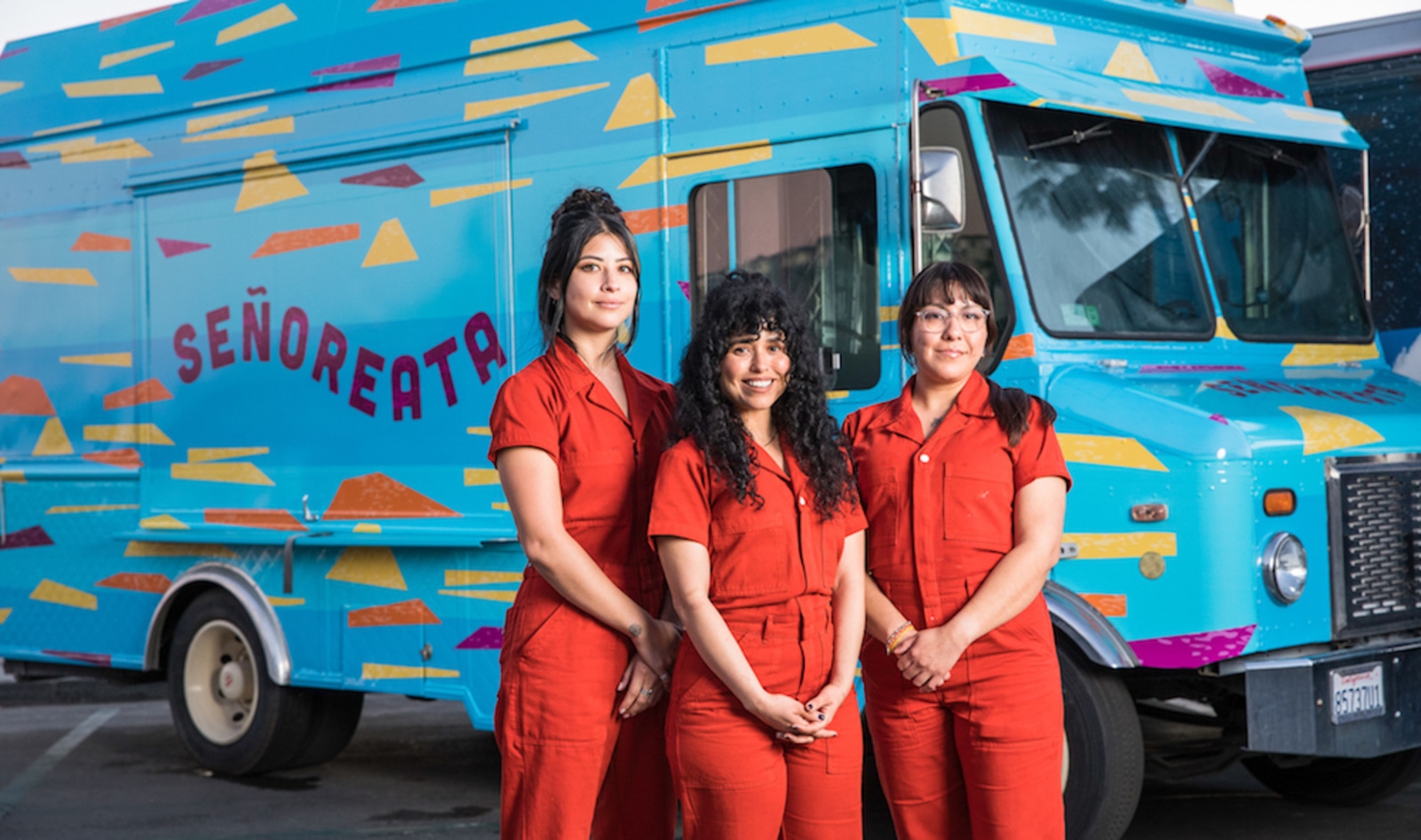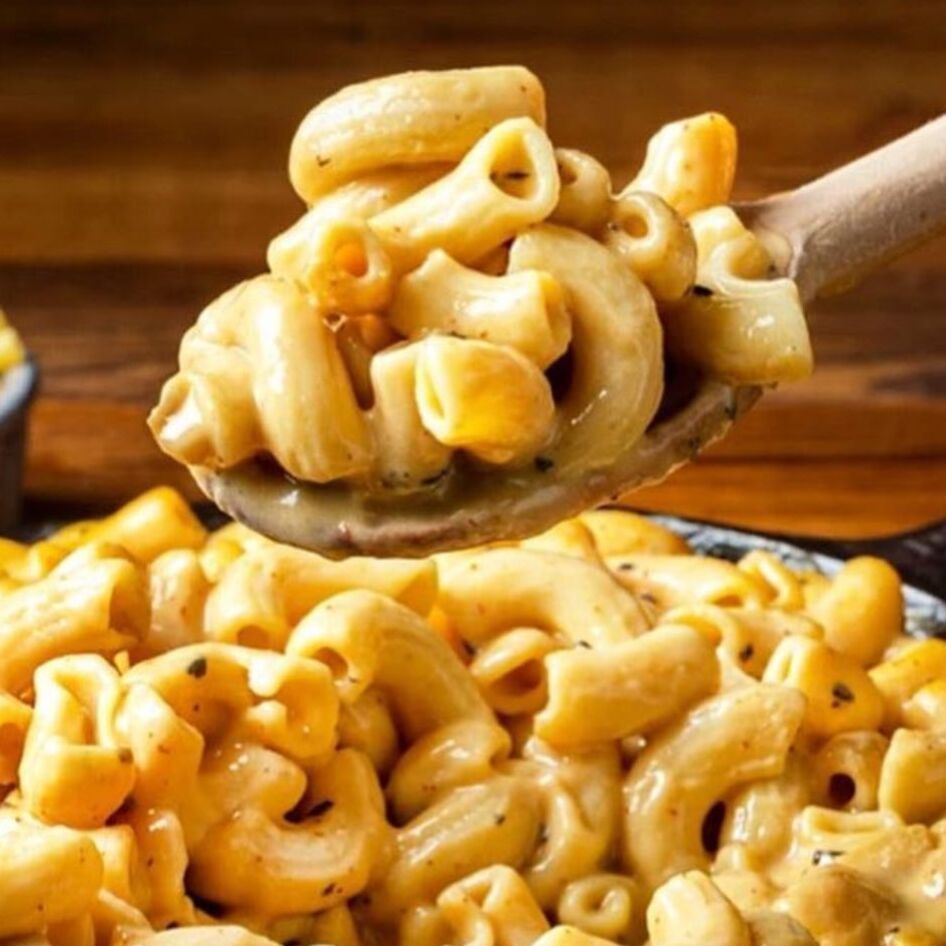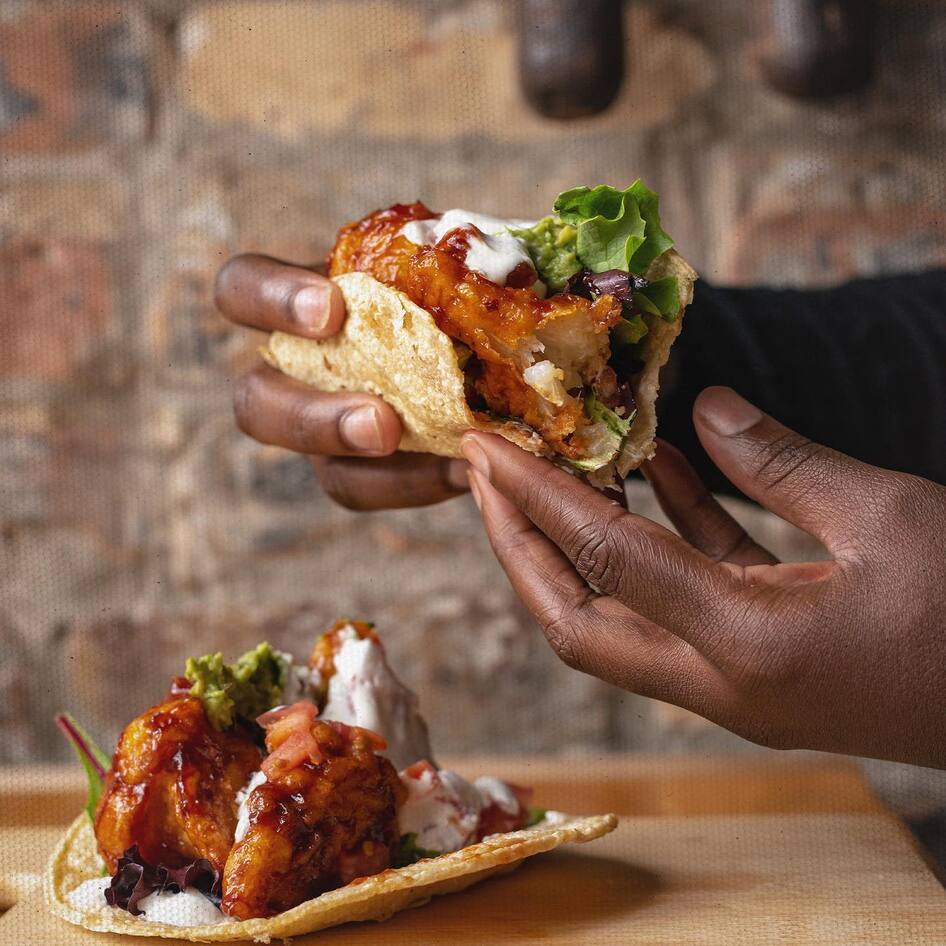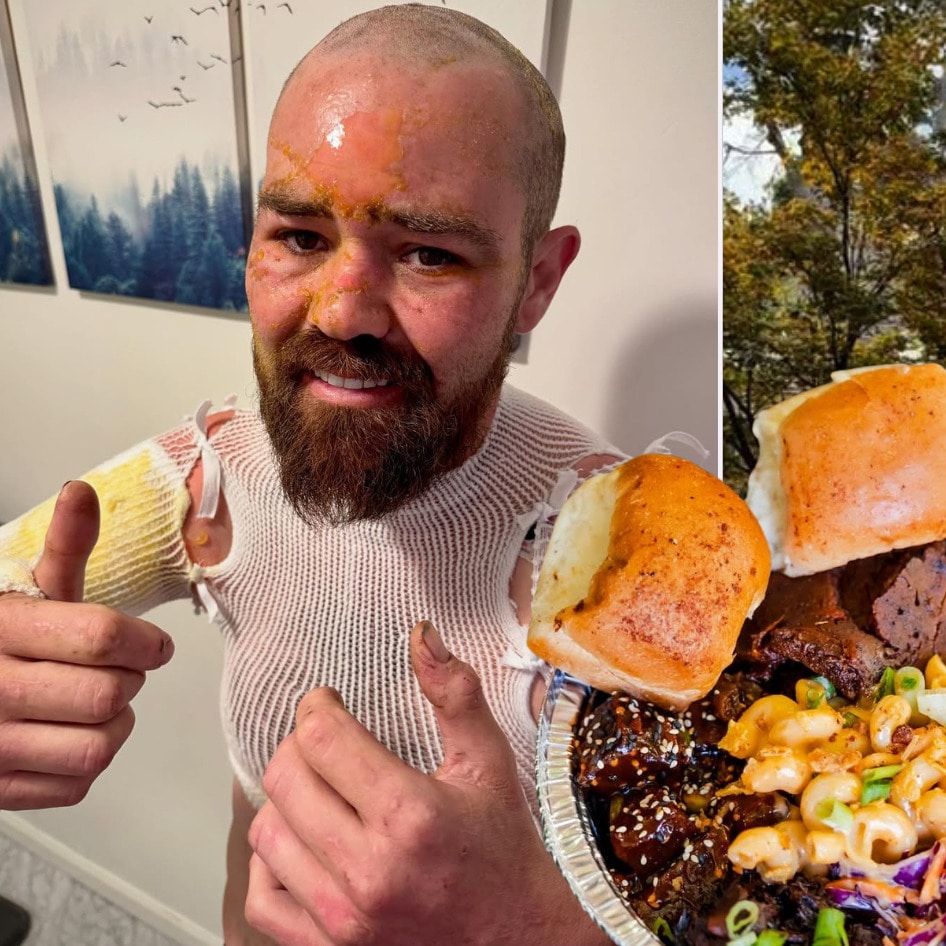Last night, Los Angeles-based Cuban pop-up Señoreata made history after nabbing the victory on season 15 of Food Network’s The Great Food Truck Race. Helmed by founder Evanice Holz, the Señoreata team consists of Chely Saludado and Adri Law. Officially titled “Hottest Season Ever,” season 15 saw the trio compete against Amawele’s South African Kitchen; Eso Artisanal Pasta; sandwich concept Food Flight; Girl’s Got Balls, which slings arancini balls in non-traditional flavors; Mexican fusion truck Salsa Queen; soul food caterer Sauté Kingz; Southern Pride Asian Fusion, which brings together Southern and Asian cuisines; and loaded macaroni and cheese truck, Maybe Cheese Born With It.
Señoreata—the first plant-based food concept to earn a spot in a finale of The Great Food Truck Race—went head-to-head with Maybe Cheese Born With It as the final two teams raced to out-cook and outsell each other in San Diego for a chance to win the $50,000 grand prize. Both teams faced off in a series of three challenges across two days. Up first, Señoreata was tasked with creating a unique interpretation of Maybe Cheese Born With It’s classic macaroni and cheese, a dairy-based dish and one of the concept’s best-selling items. Similarly, Maybe Cheese Born With It had to put its own spin on Señoreata’s plant-based ceviche, a traditional South American seafood dish. While their competitor opted for shrimp-topped macaroni and cheese, Señoreata wowed customers with a vegan, three-cheese chicken quesadilla featuring provolone, cheddar, queso fresco, onions, plant-based fried chicken, and drizzles of garlicky crema.
 Food Network
Food Network
After slinging their new creations outside of a local brewery, both teams were surprised by host Tyler Florence with a second challenge. This time, they were tasked with creating a new menu item that would pair with a craft beer of their choosing. While both teams opted for a light, refreshing IPA with notes of lime, Señoreata’s tacos stuffed with pinto beans, its signature Cuban frita meat, and a drizzle of cilantro-garlic sauce proved victorious over Maybe Cheese Born With It’s loaded macaroni and cheese topped with a zesty lime salsa and Tajín.
But it wasn’t until day two of the finale that both teams would be put to the test with yet another challenge. And this time, they were tasked with creating a next-level spicy dish with one of three chilis: habanero, Trinidad Moruga Scorpion, or the hottest chili in the world, the Carolina Reaper. Although Señoreata’s stuffed gordita with Carolina Reaper salsa impressed the judges, it was deemed too spicy to finish eating and Maybe Cheese Born With It’s elote macaroni and cheese featuring habanero came out on top.
Despite the setback, Señoreata was ultimately selected as the winner, with host Florence declaring, “You won one for the vegans!” Not only did the Cuban pop-up become the first vegan concept to win the competition show, it also won by the highest margin in show history, earning a whopping $9,911 in San Diego and beating its competitor by $4,222.
“This show has been airing for 12 years, to be the first plant-based concept to make it to the finale, while also serving a massive niche cuisine with Cuban food, feels indescribable,” Holz told VegNews. “When I was in high school watching Food Network, I wish I saw a Latina-owned business and team of three women of color that I could relate to shattering glass ceilings. I’m really moved by it and that my company has made that kind of impact on food.”
The prize money, Holz shares, will be evenly divided. “[Law] and [Saludado] put their lives and work on hold to help me chase my dream and deserve to spend it however they want,” Holz said. “As for me […] it’s been a dream to have made it this far on Food Network, and I plan to put the money straight back into the company.”
Señoreata’s vegan Cuban cuisine
Founded in 2017 in East Los Angeles, Señoreata got its start when Holz packed her Prius to the brim with ingredients and a mobile kitchen, ready to sling her plant-based, Cuban fare at events across the city. Today, the pop-up has earned a cult following with dishes such as Cubano sandwiches made with jackfruit lechon (jackfruit pork in a citrusy, peppery marinade); buttery, guava- and cheese-stuffed pastries; and loaded cassava fries topped with pickled onions, avocado, cilantro garlic sauce, dairy-free queso, and lime.
“I’m rewriting the narrative of my own experience as a first generation, modern, Cuban-Brazilian American, and making food my own way.”
—Evanice Holz
Although Señoreata made its debut five years ago, the pop-up’s roots can be traced to Holz’s own vegan journey. Three years after adopting a vegetarian diet in high school when a friend inquired, “Hey, want to go vegetarian?,” Holz came across a Food Network Magazine column spotlighting a plant-based chef and his vegan dog. Holz’s curiosity took over, and she made a New Year’s resolution to go vegan for two months, ultimately sticking with the lifestyle change for good.
Shortly after adopting a meatless diet, however, Holz found herself longing for the Cuban food she grew up eating. The entrepreneur, a first-generation Cuban-Brazilian American, started asking her father and grandmother for their traditional recipes. Making them plant-based, Holz notes, was easier than she imagined.
“When I went plant-based, I had to start learning how to cook because my father certainly didn’t know what to cook for me. He didn’t understand the concept of veganism,” Holz said. “I started [veganizing] picadillo and arroz con pollo. I went from there, developing recipes at 19 years old. Señoreata is an extension of that whole experience.”
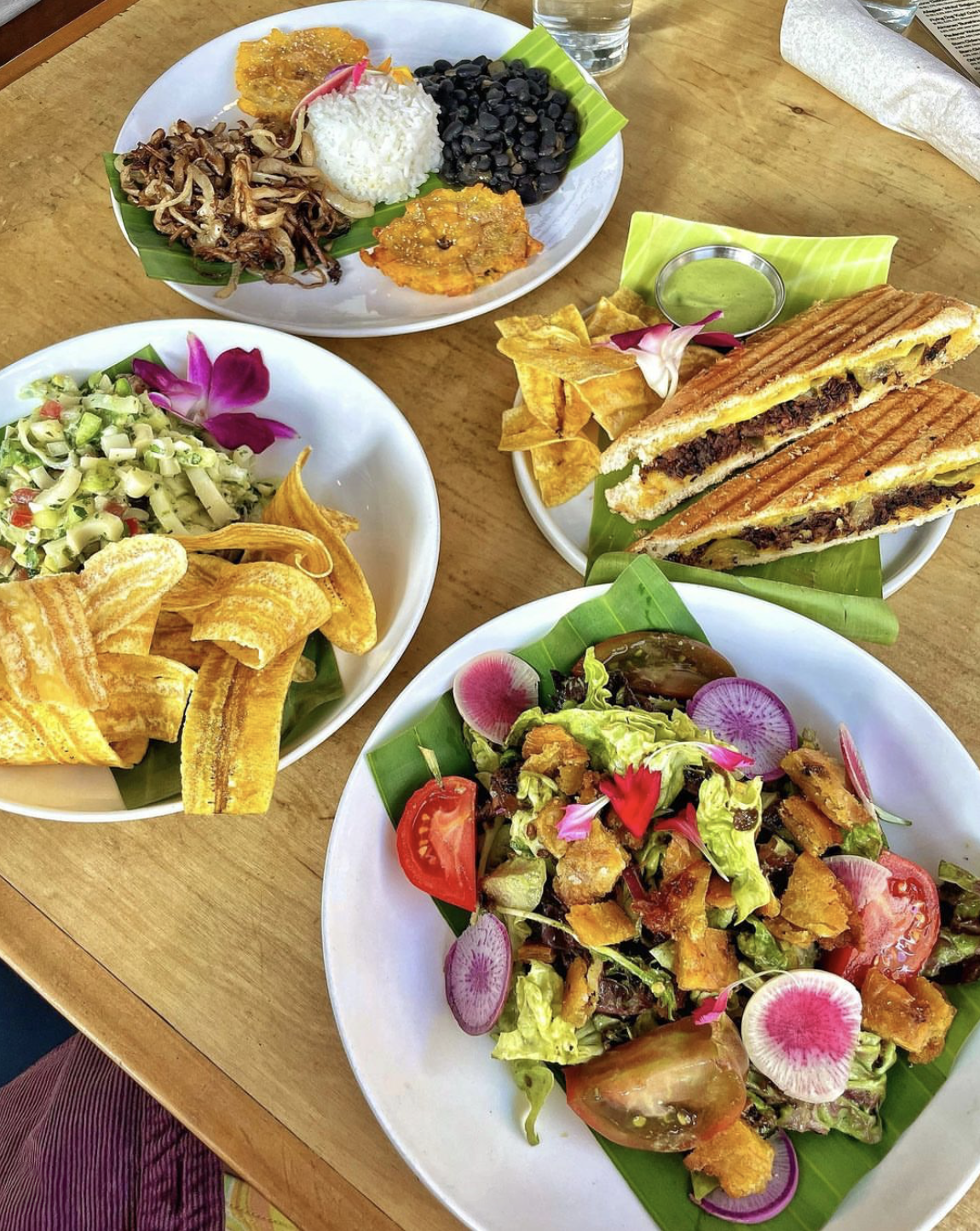 Señoreata
Señoreata
Ultimately, this culinary journey helped Holz cultivate a stronger connection to her Latin American heritage. “I’m rewriting the narrative of my own experience as a first generation, modern, Cuban-Brazilian American, and making food my own way. It’s all about figuring it out—that’s the first generation tagline,” Holz said. “Señoreata is me figuring it out, and here’s what I’ve [learned]. I feel even more connected [to my culture] than when I was eating these dishes as a child.”
Vegan for la cultura
With her appearance on The Great Food Truck Race, Holz hopes to inspire viewers with entrepreneurial ambitions to take the first step toward launching their own business. She also aims to showcase how delicious plant-based cuisine can be and prove that it holds up to omnivorous dishes.
“I think we might inspire other people to put more plant-based dishes on their menu because they see, ‘Oh, maybe there’s something to this,’” Holz said. “I know there’s still a lot of people who think plant-based food is something foreign, but I think if you release the stigma behind vegan food, [we can] unwrap it, bring it back to basics, and serve it in a way that is culturally relevant.”
It’s this desire for culturally relevant, plant-based food that fuels Holz. Beyond her run on the Food Network, Holz is in the early stages of opening a restaurant in Joshua Tree. The entrepreneur, who splits her time between Los Angeles and the high desert, dreams of bringing more vegan options to Joshua Tree, where plant-based restaurants are few and far between. Outside of her food ventures, Holz plans to launch meal-planning services and classes that teach low-income families how to cook plant-based on a budget.
For a taste of Señoreata’s vegan eats, visit the pop-up on Instagram to learn where they’re heading next.
For more vegan Food Network, read:Meet the Chefs on Food Network’s Vegan Episode of ‘Beat Bobby Flay’13 Vegan-Friendly Food Network Moments
First Vegan Baker Appears on Food Network’s ‘Holiday Wars’
JUMP TO ... Latest News | Recipes | Guides | Health | Subscribe

